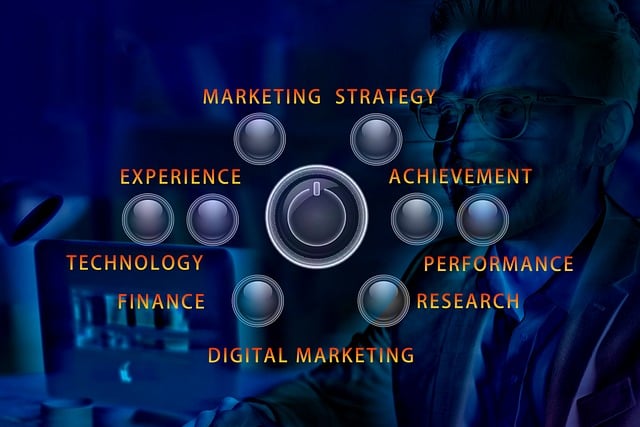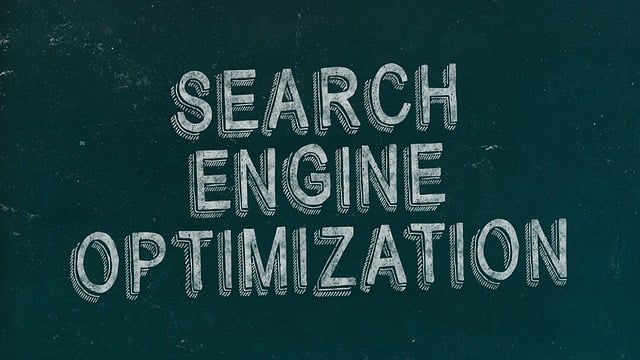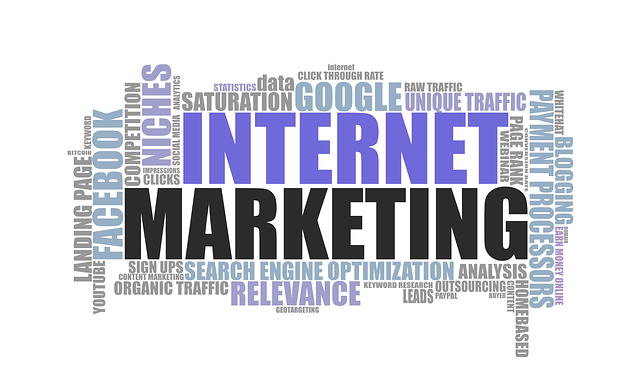In today's digital era, Digital Marketing is vital for business growth, involving strategies like SEO, social media engagement, content creation, and data-driven insights. From basic online promotions to sophisticated data-centric approaches, the landscape has evolved. Success relies on clear goals, target audience understanding, high-quality content, and strategic platform utilization (e.g., Instagram, Twitter). Key components include SEO for organic traffic, email automation for personalized communication, and KPI tracking for data-informed optimizations using tools like Google Analytics. Effective Digital Marketing fosters brand visibility, engagement, loyalty, and competitiveness in a dynamic online environment.
In today’s digital era, professional digital marketing is no longer an option but a necessity. Understanding and mastering this dynamic field can unlock immense online potential for businesses of all sizes. This comprehensive guide takes you on a journey through the evolution of digital marketing, from its foundational strategies to cutting-edge techniques. We’ll explore key components, audience identification, content optimization, social media leverage, SEO, email automation, and measuring success through KPIs, empowering you with the insights needed to thrive in the competitive online landscape.
Understanding Digital Marketing: Unlocking Online Potential

In today’s digital era, understanding digital marketing is no longer an option but a necessity for businesses aiming to thrive and unlock their online potential. It involves utilizing various digital channels and strategies to reach and engage with customers worldwide. From search engine optimization (SEO) to social media marketing, email campaigns, and content creation, each aspect plays a crucial role in building an effective digital marketing strategy. By optimizing websites for search engines, businesses can increase visibility and attract organic traffic, while social media platforms offer direct engagement with target audiences.
Digital marketing allows companies to create personalized experiences, build brand awareness, and foster customer relationships at scale. With data-driven insights, marketers can analyze consumer behavior, preferences, and trends, enabling them to make informed decisions. This adaptability and reach are what set digital marketing apart, providing businesses with a powerful tool to stand out in a competitive market and stay ahead of the curve.
The Evolution of Digital Marketing Strategies Over Time

The digital marketing landscape has undergone a remarkable evolution, transforming from simple online promotions to intricate, data-driven strategies. Early days saw a focus on building websites and basic SEO, but as technology advanced, so did consumer behavior. Social media platforms emerged as powerful tools, allowing direct engagement with audiences. Marketers adapted by creating dynamic content tailored to each platform’s unique character.
Over time, digital marketing evolved to emphasize personalized experiences. With the advent of big data, companies could gather and analyze vast amounts of consumer information, enabling them to deliver targeted campaigns. This shift has led to more effective advertising, improved customer retention, and a deeper understanding of target demographics. As technology continues to progress, artificial intelligence and machine learning are expected to play an even more significant role in shaping the future of digital marketing strategies.
Key Components of a Successful Digital Marketing Campaign

A successful digital marketing campaign hinges on several key components that, when executed well, can drive significant results. Firstly, defining a clear and specific goal is essential. Whether it’s increasing brand awareness, generating leads, or boosting sales, setting measurable objectives allows for strategic planning and effective performance tracking. Understanding your target audience is another cornerstone; tailoring content, messages, and channels to resonate with specific demographics, interests, and behaviors ensures higher engagement and conversion rates.
Content creation plays a pivotal role in digital marketing. High-quality, relevant, and consistent content not only captivates audiences but also establishes brand authority and fosters trust. Leveraging various formats such as blog posts, videos, infographics, and social media updates helps to cater to diverse preferences and keep your audience engaged. Additionally, integrating search engine optimization (SEO) strategies ensures that your content is easily discoverable, driving organic traffic and expanding your online reach.
Target Audience Identification: Niche Down for Maximum Impact

Identifying your target audience is a cornerstone in digital marketing, allowing businesses to focus their efforts and resources effectively. It involves understanding who your potential customers are, their demographics, interests, behaviors, and pain points. By narrowing down your ideal customer profile, you can tailor your messaging and campaigns to resonate with them directly.
Niche targeting is particularly powerful in the digital space. Instead of casting a wide net, marketing efforts become more precise and impactful. This strategy enables businesses to create highly relevant content, utilize the right channels, and allocate budget efficiently. As a result, brands can build stronger connections with their audience, leading to higher engagement, conversion rates, and long-term success in the competitive world of digital marketing.
Content Creation and Optimization Techniques for Enhanced Engagement

In the realm of digital marketing, content creation is not merely about crafting text and images; it’s an art that involves understanding audience behavior and preferences. Effective content creation starts with identifying target demographics and tailoring materials to resonate with them. This includes leveraging popular formats like video, infographics, and interactive media to capture attention quickly. Additionally, storytelling plays a pivotal role in engaging audiences by creating emotional connections through compelling narratives.
Optimization techniques are equally vital to ensure that created content reaches its intended audience. Search Engine Optimization (SEO) strategies, such as keyword placement and meta tagging, enhance visibility on search engines. Social media platforms also require specific tactics like hashtag usage and influencer collaborations to boost engagement and shareability. By combining creative content generation with strategic optimization methods, digital marketers can significantly increase online presence and drive higher levels of audience interaction, ultimately enhancing the overall Digital Marketing success.
Leveraging Social Media Platforms to Build Brand Awareness

In the dynamic landscape of digital marketing, social media platforms have emerged as powerful tools for building brand awareness. By leveraging these channels effectively, businesses can connect with a vast and diverse audience, fostering engagement and creating a strong online presence. Each platform offers unique opportunities; Instagram, with its visual appeal, is ideal for showcasing products and storytelling, while Twitter facilitates real-time conversations and trend setting.
Strategic content creation, consistent branding, and responsive communication are key to success. Marketers can drive traffic to their websites, increase conversions, and establish a loyal following by sharing valuable insights, running targeted ads, and encouraging user-generated content. This multifaceted approach not only amplifies brand visibility but also builds trust and credibility in the digital realm.
Search Engine Optimization (SEO): Driving Organic Traffic

Search Engine Optimization (SEO) is a cornerstone of successful digital marketing, serving as a powerful strategy to drive organic traffic to websites. By understanding how search engines work and what users are searching for, businesses can optimize their online content, making it more visible and relevant in search results. This involves a meticulous process of keyword research, on-page optimization, and creating high-quality, engaging content that aligns with user intent.
Effective SEO practices ensure that when potential customers search for products or services related to a brand’s offerings, the website appears at the top of search engine results pages (SERPs). This organic reach is invaluable as it attracts a steady stream of targeted visitors who are more likely to convert into customers. Moreover, SEO provides long-term benefits, building a strong online presence that can endure over time, especially when regularly updated and adapted to evolving digital marketing trends.
Email Marketing Automation: Personalized Communication at Scale

Email marketing automation is a powerful tool within the digital marketing arsenal, allowing businesses to personalize communication on a large scale. By leveraging advanced technologies, companies can automate the process of sending targeted emails to individual customers based on their behaviors, preferences, and past interactions. This level of customization ensures that each recipient receives content tailored specifically for them, fostering stronger customer relationships.
Through automation, digital marketers can efficiently segment their email lists, creating personalized campaigns that resonate with different audience segments. Whether it’s a welcome series for new subscribers or abandoned cart reminders, automated emails provide an opportunity to engage customers at every touchpoint. This strategic approach not only increases open rates and click-throughs but also enhances the overall customer experience, driving conversions and fostering brand loyalty in today’s competitive digital landscape.
Measuring Success: Analyzing Key Performance Indicators (KPIs)

In digital marketing, measuring success is paramount for understanding what’s working and where there’s room for improvement. The cornerstone of this evaluation lies in Key Performance Indicators (KPIs). KPIs are quantifiable metrics that align with broader business goals, providing a clear picture of how effectively digital marketing strategies are performing. For instance, for an e-commerce site, KPIs might include conversion rates, average order value, and customer acquisition cost; these indicators help gauge the return on investment in online advertising, email campaigns, or social media presence.
By regularly analyzing KPIs, marketers can make data-driven decisions to optimize their strategies. Tools like Google Analytics offer robust platforms to track and interpret these metrics, enabling professionals to adjust tactics in real time. This dynamic approach ensures that digital marketing remains responsive to market trends and consumer behaviors, ultimately driving better results and a competitive edge in the ever-evolving digital landscape.
